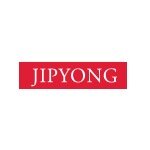Best Creditor Lawyers in Jung-gu
Share your needs with us, get contacted by law firms.
Free. Takes 2 min.
List of the best lawyers in Jung-gu, South Korea
About Creditor Law in Jung-gu, South Korea
Creditor law in Jung-gu, South Korea, is part of the broader area of creditor-debtor law, which concerns the relationship between borrowers and lenders. This area of law is designed to regulate and protect the rights of creditors when they are owed money by debtors. The laws cover various issues, including debt collection practices, bankruptcy proceedings, and protection against unfair practices. In Jung-gu, these laws ensure that creditors can adequately enforce their rights while balancing the interests of debtors who may be facing legitimate financial difficulties.
Why You May Need a Lawyer
People may require legal help in creditor-related matters for various reasons. Common situations include:
- Debt Recovery: Assisting creditors in recovering loans from debtors who have defaulted.
- Negotiating Settlements: Facilitating negotiations between creditors and debtors to settle debts amicably.
- Bankruptcy Proceedings: Guiding creditors through the legal process when a debtor files for bankruptcy, ensuring their rights are protected.
- Legal Documentation: Drafting and reviewing contracts, loan agreements, and other legal documents.
- Enforcement of Judgments: Implementing court decisions that require debtors to pay what they owe.
Local Laws Overview
In Jung-gu, South Korea, several key aspects of local laws are relevant to creditors:
- Civil Code: Governs the contractual relationships and obligations between creditors and debtors.
- Commercial Code: Provides guidelines for commercial transactions, including credit arrangements.
- Bankruptcy Act: Outlines the procedures for insolvency and protecting creditor rights in bankruptcy cases.
- Fair Debt Collection Practices: Protects debtors from abusive debt collection methods while ensuring creditors can lawfully collect debts.
Frequently Asked Questions
What is the first step in recovering a debt in Jung-gu?
The first step is often sending a formal demand letter to the debtor, outlining the amount owed and the consequences of non-payment.
Can creditors charge interest on overdue payments?
Yes, creditors can charge interest on overdue amounts if this is specified in the contract. However, the interest rate must comply with local regulations.
What legal options do creditors have if a debtor refuses to pay?
Creditor options include filing a lawsuit, obtaining a judgment, and enforcing it through wage garnishments or asset seizure.
Are debt collection agencies allowed to operate in Jung-gu?
Yes, licensed debt collection agencies can operate, but they must adhere to fair debt collection practices as per local laws.
How long does it normally take to resolve a debt recovery case?
The timeframe can vary based on factors like the complexity of the case and the willingness of the debtor to settle. It can range from a few months to over a year.
Can a creditor take legal action if the debtor relocates outside Korea?
Yes, but it can be more complex and often requires international legal cooperation.
What protections do debtors have against creditors?
Debtors are protected from abusive collection practices, and there are legal avenues such as bankruptcy to resolve uncontrollable debts.
Is mediation required before taking legal action?
Mediation is not mandatory but is encouraged to resolve disputes amicably without court intervention.
Can creditors recover lawyer's fees from debtors?
This depends on the terms set forth in the original contract and the decision of the court.
How are disputes between creditors resolved?
Such disputes are generally resolved through negotiation, mediation, or litigation if necessary.
Additional Resources
For those seeking further assistance, consider the following resources:
- Jung-gu District Office: Offers guidance on local regulations and mediation services.
- Ministry of Justice: Provides information on creditor and debtor rights and responsibilities.
- The Korean Bar Association: Aids in finding qualified legal professionals specializing in creditor law.
Next Steps
If you need legal assistance in creditor matters, the following steps can be helpful:
- Consultation: Schedule a consultation with a lawyer specializing in creditor law to discuss your situation.
- Document Review: Have all relevant documents and evidence reviewed by your legal advisor.
- Strategy Development: Work with your lawyer to develop a strategy that aligns with your goals, whether it involves negotiation or litigation.
- Follow-up: Regularly communicate with your legal representative to keep updated on the case progress.
Lawzana helps you find the best lawyers and law firms in Jung-gu through a curated and pre-screened list of qualified legal professionals. Our platform offers rankings and detailed profiles of attorneys and law firms, allowing you to compare based on practice areas, including Creditor, experience, and client feedback.
Each profile includes a description of the firm's areas of practice, client reviews, team members and partners, year of establishment, spoken languages, office locations, contact information, social media presence, and any published articles or resources. Most firms on our platform speak English and are experienced in both local and international legal matters.
Get a quote from top-rated law firms in Jung-gu, South Korea — quickly, securely, and without unnecessary hassle.
Disclaimer:
The information provided on this page is for general informational purposes only and does not constitute legal advice. While we strive to ensure the accuracy and relevance of the content, legal information may change over time, and interpretations of the law can vary. You should always consult with a qualified legal professional for advice specific to your situation.
We disclaim all liability for actions taken or not taken based on the content of this page. If you believe any information is incorrect or outdated, please contact us, and we will review and update it where appropriate.








